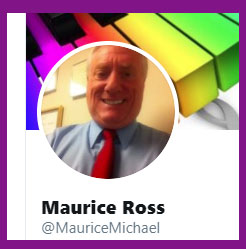
Most Wedding Photographers work with Assistants or Second Shooters. How does this affect copyright? I recently had the privilege to discuss this matter with Maurice Ross, a New York intellectual property attorney who has been litigating copyright and privacy issues for over thirty years. Here’s what he had to say:
The position of “second shooters” is also generally governed by state contract law rather than federal law. In most circumstances, if the main photographer brought along an “assistant” as a second shooter, the second shooter is deemed an employee of the main photographer, and his work is usually deemed to belong to the main photographer. Most professional photographers have specific written agreements drafted by legal counsel that require their assistants to acknowledge that they are employees, and that the photograph controls and owns the shots they take. Further, under state contract law, most where the main photographer brings in an assistant, the assistant is deemed bound by the agreement between the main photographer and the wedding couple of event planner. As a practical matter, this usually means that the photographs of the second shooter are deemed works for hire belonging to the wedding couple or wedding sponsor, or that the copyrights in the photographs of the second shooter are assigned (through the main photographer) to the wedding couple or wedding sponsor. The situation may be quite different if the “second shooter” was not brought into the picture by the photographer, but was retained by the wedding couple or event sponsor. In that situation, no employment relationship is created between the main photographer and the “second shooter” and copyright in the photographs of the second shooter either belong to the second shooter or to the wedding couple/event sponsor if there was an agreement (written or implied) assigning the copyrights in the photographs of the second shooter to the wedding couple/event sponsor.
What does all this mean as a practical matter—professional photographers (and second shooters) who wish to retain the right to use and distribute photographs taken at weddings or other events should retain legal counsel to create written agreements pursuant to which they retain ownership of copyrights in the photographs they create and license the photographs for explicitly defined uses by the wedding couple or event sponsors. Photographers who simply rely on the general provisions of federal copyright law are making a big mistake because federal copyright law has never been found to preempt state contract law on the question of whether a binding agreement has been created to assign copyrights or create works for hire. By the same token, wedding couples and event planners need to recognize that in the absence of an agreement (written or implied) providing that photographs taken at the event are works for hire, exclusively licensed, or that the copyrights in them are assigned to the wedding couple/event planner, the photographer could reasonably assert that he owns copyright in the photographs, that he provided a license of only limited scope to the wedding couple, and that he is entitled to additional compensation if the photographs are further copied, reproduced or distributed. In the final analysis, it is in the best interest of all concerned—photographers and wedding couple/event sponsors, that there be written agreements that carefully define ownership of copyrights in the photographs and the scope and limitations on any license to use, copy, reproduce and distribute them.
Maurice Ross is a heck of a guy. Follow him on Twitter, you won’t regret it.
